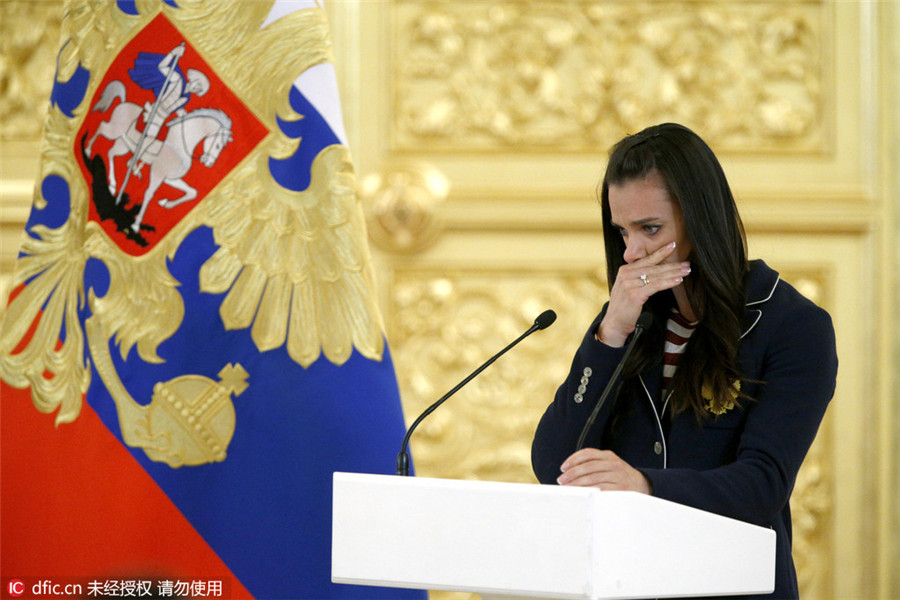







 |
|
Russia's pole vaulter and Olympic champion Yelena Isinbayeva chocks as she speaks at the Kremlin, Moscow, Russia, July 27, 2016 during a reception for the Russia's Olympics team. [Photo/IC] |
The ban on Russia's track-and-field team going to Rio was imposed last November by the IAAF after an independent report uncovered rampant state-sponsored doping in Russian athletics. It was maintained in June after the IAAF Council ruled that not enough progress had been made in transforming Russia's anti-doping programme.
Russia had argued it had taken steps to clean up the sport, and that the blanket ban was unfair to individual athletes with no record of doping.
With its decision, the court was "absolutely violating the rights of clean athletes, creating a precedent of collective responsibility", Sports Minister Vitaly Mutko said in comments televised on state channels.
The ball is now in the court of the IOC to decide whether Russia should be excluded from all sports at the Rio Games, starting on Aug. 5.
Pressure on the IOC to take such a step increased this week after another report commissioned by the World Anti-Doping Agency revealed evidence of systematic state-sponsored doping by Russian competitors before and during the 2014 Winter Olympics in the Russian city of Sochi.
The IOC's executive committee met to discuss the issue on Tuesday and though it condemned the activities and started disciplinary proceedings against many of those involved, it postponed any announcement on a possible blanket ban pending legal advice and the outcome of the CAS hearing.
The IOC is expected to reach a final decision on Sunday.